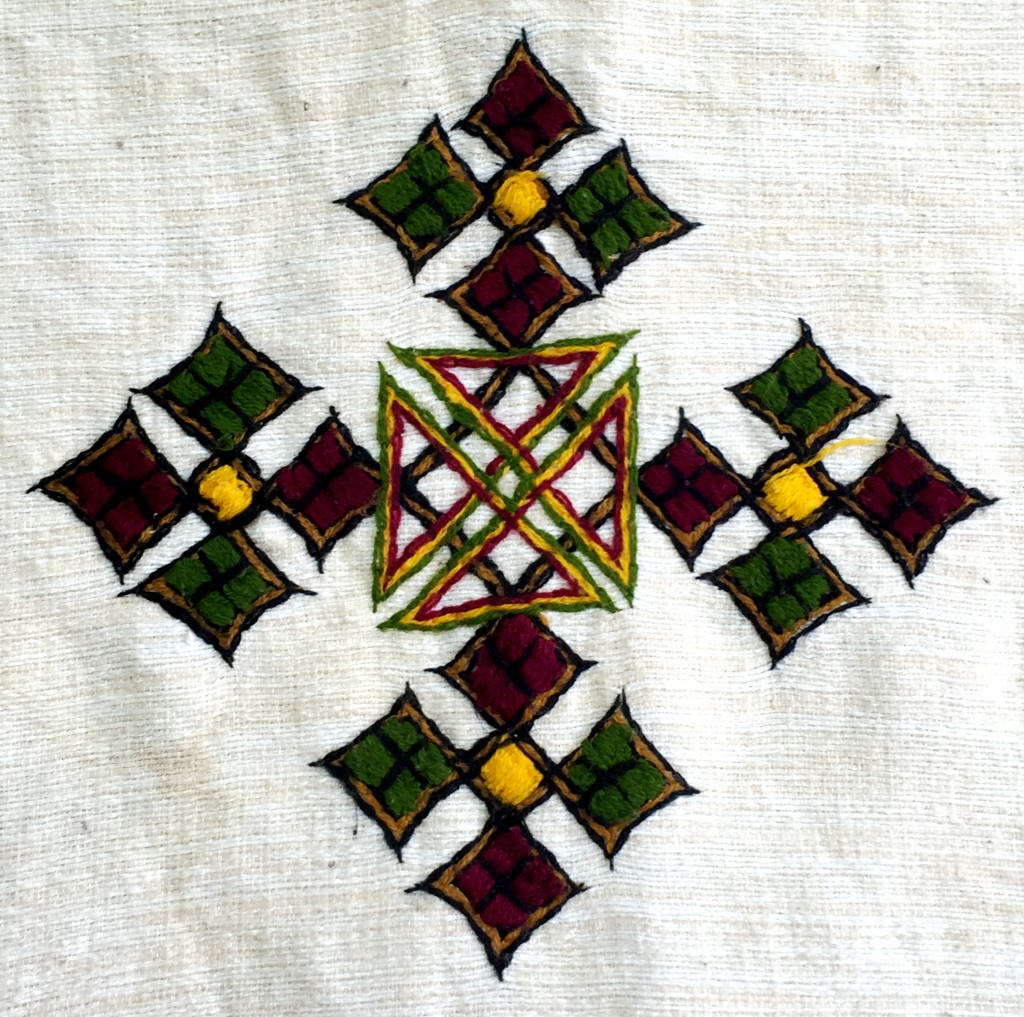Caravan Song
Even in the autumn we walk on dust!
Even in winter we trample in the mud!
How can a man escape poverty?
Poverty is a great misfortune.
Tall men it shortens.
Short men it destroys totally.
It makes little stools out of chairs.
It makes rags out of fine clothes.
It turns away invitations.
The wife of a poor man
goes home without invitations,
without “please sit down hereâ€.
She quarrels with her husband,
as if he had beaten her!
~ Anonymous, trans. by Enrico Cerulli
Editor’s note: Originally published in Enrico Cerulli, ‘The Folk Literature of the Galla of Southern Abyssinia, 1917’ (Harvard African Studies)
Nasero, the great ox
O, my great ox, let me die!
O, my Nasero, let me die!
O, my great ox, which copulates with the cows
by the mineral water hole.
O, my great ox, which warms the hearts of others
when bellowing in the fields.
My great ox looks different now,
its body is butchered into many pieces.
My great ox looks different now.
O, king, its body is butchered into many pieces!
The knives which cut my great ox
are the knives of the big landlords.
Yahi has many females,
Ibi has many calves:
if I go to these men with my serfs,
how can you bring me back?
My great ox looks different now,
and its body is butchered now;
how can you bring it back to me?
O, by any means, bring back my great ox to me!
O, by any means, restore my great ox to me!
O, my Nasero, let me die!
Is not my great ox the husband of cows
at the mineral water hole?
Does not my great ox touch the hearts of others
when bellowing?
O, my great ox, let me die!
O, my Nasero, let me die!
O, king, are you going to replace my great ox?
O, king, are you going to find my great ox?
If you are not going to return my great ox,
I will wear my ragged clothes;
I will carry my shield,
I will kill myself!
If I do not do this,
my body is not worthy of the vultures;
my fields are not worthy of labor,
my body is not worthy of a woman.
O, king, replace my great ox!
O, king, find my great ox!
O, Nasero, let me die!
O, beloved Nasero, let me die!
If this is not done, I will avenge my great ox!
If this is not done, I will kill you!
~ Anonymous, trans. by Werner Lange
Editor’s note: Originally published in ‘Domination and Resistance: Narrative Songs of the Kafa Highlands’
Sibu’s boast
A man surpassing Sima?
I know him
I will say his name!
I speak of Sibu
of Sone
whose waist is a rope
I speak of Sibu
son of Buse
son of Miggu!
his mother is Boge
his father is Busani
no-one grows tired of looking at him!
~ Anonymous, trans. by Enrico Cerulli
Editor’s note: Originally published in Enrico Cerulli, ‘The Folk Literature of the Galla of Southern Abyssinia, 1917’ (Harvard African Studies)
Gondar
Beautiful from her beginnings, Gondar, hope of the wretched!
And hope of the great, Gondar, without measure or bounds!
O dove of Johannes, Gondar, generous hearted mother!
Gondar, never bowed by affliction!
Gondar, with her merry name!
Gondar, seat of prosperity and of savoury food!
Gondar, dwelling of King Iyasu and of mighty Bekafa!
Gondar, which emulated the city of David, the land of Salem!
She will be a myth unto eternity.
How is it that she has been destroyed like Sodom
and without any guilt?
~ Anonymous, trans. by Enrico Cerulli
Editor’s note: Gondar is a beautiful town north of Lake Tana, founded by King Fasilidas in 1635, full of crumbling 17th-century castles, For 250 years, it was the capital of the Ethiopian empire. This poem was translated by Enrico Cerulli, and is quoted in ‘Wax and Gold’, by Donald Levine(University of Chicago Press, 1965).
Ox
If I were an ox, an ox, a beautiful ox!
beautiful and stubborn,
a rich merchant would buy me,
buy me and slaughter me,
spread out my skin and take me to the market.
The coarse woman would bargain for me,
but the beautiful girl would buy me!
She would crush perfumes for me.
I would spend the night rolled up around her,
I would spend the afternoon rolled up around her.
Her husband would say, “It’s just a dead skin.â€
But I would have my love!
~ Anonymous, trans. by Enrico Cerulli
Editor’s note: Originally published in Enrico Cerulli, ‘The Folk Literature of the Galla of Southern Abyssinia, 1917’ (Harvard African Studies)
Love song
You lime of the forest, honey among the rocks,
lemon of the cloister, grape in the savannah.
A hip to be enclosed by one hand;
a thigh round like a piston.
Your back — a manuscript to read hymns from.
Your eye trigger-happy, shoots heroes.
Your gown, cobweb-tender,
your shirt like soothing balm.
Soap? O no, you wash in Arabian scent,
your calf painted with silver lines.
I dare not touch you!
Hardly dare to look back.
You mistress of my body:
more precious to me than my hand or my foot.
Like the fruit of the valley, the water of paradise.
Flower of the sky; wrought by divine craftsmen;
With muscular thigh she stepped on my heart,
her eternal heel trod me down.
But have no compassion with me:
her breast resembles the finest gold;
when she opens her heart —
the Saviour’s image!
And Jerusalem herself, sacred city,
shouts “Holy, holy!â€
~ Anonymous, trans. via Wole Soyinka
Editor’s note: Originally published in ‘Poems of Black Africa’, ed. Wole Soyinka(Heinemann, 1975).





